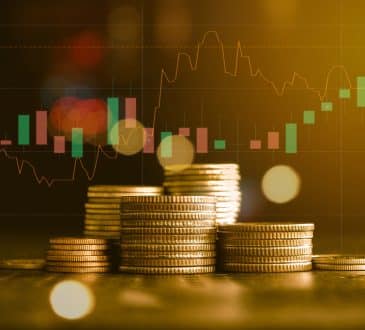How Big Brands Should Be Responsible for Recycling of Their Packaging

In recent years, the concerns around packaging waste have been steadily growing. Even prior to the covid-19 pandemic, the discussion around big brands producing a lot of waste, including packaging, was gaining worldwide attention. Then, the pandemic changed shopping habits of many people for good, creating the e-commerce boom.
With the rapid growth of online shopping, packaging waste has become more pronounced. It’s an environmental issue that should not be taken lightly. But who’s responsible for dealing with it? To be fair, the responsibility should be shared between governments, consumers, and brands, with the latter, probably, taking more responsibility than the other two.
After all, big brands are constantly working on stimulating sales which leads to the increase of packaging used and, consequently, thrown into a landfill. Let’s dive into the topic and figure out why it’s important and what retailers should be doing to become sustainable in their packaging policies.
Environmental Impact of Packaging Waste
One of the most obvious environmental consequences of packaging waste is the sheer volume of waste generated. Globally, packaging makes 44% of plastic production, and later that plastic ends up being thrown away. According to Eurostat, in 2020 there were 177.9 kg of packaging waste generated per each citizen of the EU.
Every day, tons of packaging materials, such as plastic, cardboard, and styrofoam, are discarded and end up in landfills. These landfills contribute to the release of harmful greenhouse gasses, such as methane, which greatly contribute to climate change.
Furthermore, the environmental group Oceania claims that Amazon alone is responsible for 26 million pounds of plastic waste getting into the world’s ocean in 2020. So, plastic ends up not only in landfills, but it pollutes oceans and other ecosystems as well.
At the same time, the Environmental Protection Agency warns that the amount of packaging waste generation grows three times faster than recycling. The need to increase the amount of waste going into recycling is obvious at this point.
How Big Brands Approach Sustainability
Public’s awareness of ecological issues and the discussion around sustainability weren’t unnoticed by both governments and corporations. In a lot of countries around the world, both developed and developing, the legislation to regulate packaging waste comes first. Consequently, in these markets, brands have to oblige to the regulations and tailor their packaging decisions to these regulations.
Even though the legislation is helpful, it’s still moving forward rather slowly, and to achieve maximum impact, businesses should be proactive in tackling the packaging waste issue. Some brands are already taking action, searching for more sustainable options and turning to the circular economy.
The circular economy is a strategy of reducing waste and producing things that are durable and recyclable. Various businesses are already trying to incorporate circular economy practices into their processes. The ability of a company to adopt these practices, though, depends on its resources and other factors because any business has the primary goal to not go bankrupt.
Currently, one of the popular strategies among big brands is recycling programs that allow consumers to bring products produced by those brands for recycling. For instance, Nike recycles sneakers to create materials for playgrounds, and courts. Ikea has a sustainability program too, it’s quite similar in mechanics – it allows customers to bring their Ikea products for recycling.
As for packaging, it seems that brands are moving slower in this direction than they do when it comes to recycling their products. Nonetheless, there are a few strategies that can significantly improve the situation with packaging waste.
How Big Brands Can Reduce Packaging Waste
One of the most obvious solutions is to use less packaging. The problem of excessive packaging is especially big in e-commerce where products are often being put into too many layers of packaging in order to prevent possible damage during shipping.
To avoid this, businesses can work out rules for shipping providers that help exclude damage. To reduce the negative impact of excessive packaging and packaging waste in general, companies should use sustainable materials to wrap up items for shipping.
Speaking of sustainable materials, one of the solutions here is utilizing recycled materials for packaging. According to Mckinsey, though, currently there’s a problem with insufficient supply of these materials. Not enough waste is going into recycling to create a sufficient amount of packaging out of it, and this is one of the reasons why big companies should be responsible for recycling their packaging.
What Big Brands Can Do To Boost Recycling
If big brands want to do sustainability, they should go all in. They should go beyond taking care of recycling just their products and be responsible for the packaging as well. Especially because recycling packaging can help with the lack of recycled materials for new packaging.
The first step to boost packaging recycling is using recyclable materials because not all of them are created equal. For instance, coloured plastics are harder to recycle. In 2022 the Coca-Cola corporations decided to stop using bottles made of green plastic for its beverage Sprite in order to be more environmentally friendly.
Another effective step would be to motivate consumers to recycle packaging. Let’s look at Norway where they have a great infrastructure for recycling plastic bottles. Norwegians can easily find a vending machine to submit plastic bottles to and get a refund. Consequently, within this country 97% of plastic bottles get recycled.
The Norway case proves that encouragement and infrastructure can boost consumers’ enthusiasm for recycling. Big brands can adopt this strategy and encourage their audience to recycle and provide some sort of refund for the effort, like discounts or access to limited products.
To accelerate the path to sustainability, businesses should embrace circularity. Recycling packaging is one of the necessary steps towards it, and big brands have the resources to promote recycling among their audience. They can pay more attention to the quality of packaging materials to make sure that they are recyclable and reward customers for their recycling efforts.
Have you read?
Report: Grenada Citizenship by Investment Programme, 2023.
Report: Jordan Citizenship by Investment Programme, 2023.
Report: Malta Citizenship by Investment Programme, 2023.
Report: Saint Lucia Citizenship by Investment Programme, 2023.
Report: St Kitts and Nevis Citizenship by Investment Programme, 2023.
Add CEOWORLD magazine to your Google News feed.
Follow CEOWORLD magazine headlines on: Google News, LinkedIn, Twitter, and Facebook.
Copyright 2024 The CEOWORLD magazine. All rights reserved. This material (and any extract from it) must not be copied, redistributed or placed on any website, without CEOWORLD magazine' prior written consent. For media queries, please contact: info@ceoworld.biz








